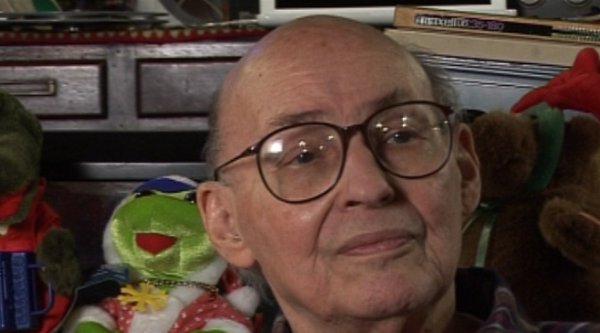NEXT STORY

The strange history of neuroscience
RELATED STORIES

NEXT STORY

The strange history of neuroscience
RELATED STORIES


|
Views | Duration | |
|---|---|---|---|
| 81. The beginning of cognitive psychology | 2406 | 01:17 | |
| 82. The strange history of neuroscience | 2446 | 03:34 | |
| 83. Chomsky's theories of language were irrelevant | 1 | 2859 | 02:28 |
| 84. Losing students to lucrative careers | 2164 | 02:23 | |
| 85. Psychology should not be like physics | 2009 | 04:07 | |
| 86. Seymour Papert goes in a different direction | 1812 | 01:23 | |
| 87. Seymour Papert's little scientists | 1747 | 02:23 | |
| 88. Representations of the mind, knowledge and thinking | 1777 | 01:51 | |
| 89. Producing The Society of Mind | 1747 | 03:13 | |
| 90. The Emotion Machine | 1685 | 01:43 |


And when I’m talking about making machines that have common sense and solve ordinary problems, everything I say about those future computer programs are also things that you could ask about how do people do those things and what kind of machinery might be in a brain that... that allows us to do those sorts of things? And what’s bothering me is that when I wrote that paper called Steps Toward Artificial Intelligence, it was... it was something like 100 pages of many new... many old and many new ideas about how those sorts of things that might work and then around the world, mostly in America, but also in England and few other places, more of these kinds of theories started to appear and psychology sort of developed a new branch which is today called cognitive psychology, as opposed to behavioral psychology or I forget the names of all the others, psychiatry and so forth.
Marvin Minsky (1927-2016) was one of the pioneers of the field of Artificial Intelligence, founding the MIT AI lab in 1970. He also made many contributions to the fields of mathematics, cognitive psychology, robotics, optics and computational linguistics. Since the 1950s, he had been attempting to define and explain human cognition, the ideas of which can be found in his two books, The Emotion Machine and The Society of Mind. His many inventions include the first confocal scanning microscope, the first neural network simulator (SNARC) and the first LOGO 'turtle'.
Title: The beginning of cognitive psychology
Listeners: Christopher Sykes
Christopher Sykes is a London-based television producer and director who has made a number of documentary films for BBC TV, Channel 4 and PBS.
Tags: Steps Toward Artificial Intelligence, USA, England
Duration: 1 minute, 18 seconds
Date story recorded: 29-31 Jan 2011
Date story went live: 12 May 2011